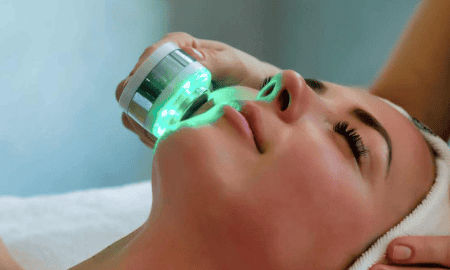
When it comes to skincare, one size does not fit all. Knowing your skin type is the first step in crafting an effective skincare routine. Whether you have oily, dry, combination, or sensitive skin, choosing the right products can make a significant difference in your skin’s health and appearance. Do you want to flaunt your glowing skin? Then read on as we guide you through understanding your skin type, the essential skincare products, and how to select the best ones for your unique needs.
Identifying Your Skin Type
Understanding your skin type is crucial for selecting the right skincare products. There are four main skin types:
Oily Skin
Oily skin is characterized by a shiny appearance and enlarged pores. It often feels greasy and is prone to acne and blackheads. People with oily skin may notice that their makeup tends to slide off during the day. If this sounds like you, your skin produces more sebum than necessary, which can lead to clogged pores and breakouts.
Dry Skin
Dry skin often feels tight, rough, and may have flaky patches. It lacks the oil that keeps skin feeling soft and supple. Those with dry skin might experience irritation and redness, especially during the colder months. This skin type can benefit from products that provide deep hydration and nourishment.
Combination Skin
Combination skin is a mix of oily and dry areas. Typically, the T-zone (forehead, nose, and chin) is oily, while the cheeks are dry or normal. Managing combination skin can be tricky, as different areas of the face have different needs. Balancing moisture and oil control is key for this skin type.
Sensitive Skin
Sensitive skin is easily irritated and may react to certain ingredients or environmental factors. It can appear red and feel itchy or burning. Finding gentle, soothing products is essential for those with sensitive skin. It’s important to avoid harsh chemicals and fragrances that can trigger reactions.
Essential Skincare Products
A well-rounded skincare routine includes several key products. Each plays a vital role in maintaining healthy, glowing skin.
Cleansers
Cleansers remove dirt, oil, and makeup from the skin. They are the foundation of any skincare routine. Having beautiful skin is one that doesn’t just look clean – it should also feel clean. For oily skin, gel-based or foaming cleansers work well to remove excess oil. Dry skin benefits from creamy cleansers that hydrate while cleaning. Sensitive skin should opt for gentle, fragrance-free cleansers to avoid irritation.
Exfoliants
Exfoliating helps remove dead skin cells, revealing brighter, smoother skin underneath. Physical exfoliants, like scrubs, contain small particles to manually slough off dead skin. Chemical exfoliants, like AHAs and BHAs, dissolve dead skin cells without scrubbing. Oily and combination skin types may benefit from chemical exfoliants, while dry skin can use gentle physical exfoliants. Sensitive skin should exfoliate sparingly to avoid irritation.
Moisturizers
Moisturizers hydrate and protect the skin barrier. For oily skin, lightweight, oil-free moisturizers prevent clogged pores. Dry skin needs rich, emollient creams to provide deep hydration. Combination skin can use a balancing moisturizer that hydrates without adding excess oil. Sensitive skin benefits from hypoallergenic, soothing moisturizers to calm irritation.
Serums
Serums are concentrated treatments that target specific skin concerns, such as wrinkles, dark spots, or acne. They are packed with active ingredients and should be applied before moisturizer. Oily skin may benefit from serums with salicylic acid or niacinamide to control oil and prevent breakouts. Dry skin should look for hyaluronic acid and peptides to boost hydration. Sensitive skin can opt for serums with calming ingredients like chamomile or aloe vera.
Masks
Masks provide an extra boost of treatment and should be used once or twice a week. Clay masks are great for oily skin, as they absorb excess oil and unclog pores. Hydrating masks, such as sheet masks or overnight masks, are perfect for dry skin. Combination skin can use multi-masking techniques, applying different masks to different areas of the face. Sensitive skin should choose soothing masks with gentle, natural ingredients.
How to Choose Products Based on Your Skin Type
Choosing Cleansers
For oily skin, look for gel or foaming cleansers with ingredients like salicylic acid to help control oil production and prevent breakouts. Dry skin benefits from creamy cleansers that include hydrating ingredients like glycerin or hyaluronic acid. Combination skin can use a gentle foaming cleanser that balances oil without over-drying. Sensitive skin should stick to mild, fragrance-free cleansers to avoid irritation.
Choosing Exfoliants
Oily and combination skin types can benefit from chemical exfoliants containing AHAs or BHAs, which help to clear pores and reduce oiliness. Dry skin should use gentle physical exfoliants with fine particles to avoid micro-tears. Sensitive skin should look for mild exfoliants with soothing ingredients like oatmeal or avoid exfoliating altogether if it causes irritation.
Choosing Moisturizers
Oily skin types should opt for oil-free, non-comedogenic moisturizers with a lightweight texture. Dry skin needs rich, emollient creams that provide long-lasting hydration. Combination skin can use gel-based moisturizers that balance hydration without adding excess oil. Sensitive skin can benefit from Dr. Althea 345 relief cream and other hypoallergenic moisturizers with marigold and sunflower extracts and propolis. Calming ingredients like chamomile or green tea are also excellent for sensitive skin.
Choosing Serums
For oily skin, serums with ingredients like niacinamide or salicylic acid can help control oil production and prevent breakouts. Dry skin should look for serums with hydrating ingredients like hyaluronic acid and peptides. Combination skin can benefit from serums that balance oil and hydration, such as those containing niacinamide. Sensitive skin should choose serums with soothing ingredients like chamomile or aloe vera.
Choosing Masks
Oily skin can benefit from clay masks that absorb excess oil and unclog pores. Dry skin should use hydrating masks, such as sheet masks or overnight masks, that provide deep moisture. Combination skin can use multi-masking techniques, applying different masks to different areas of the face. Sensitive skin should choose soothing masks with gentle, natural ingredients like oatmeal or aloe vera.
Incorporating New Products into Your Routine
When introducing new products into your skincare routine, it’s essential to do so gradually. Start with one new product at a time and allow your skin to adjust. This approach helps you identify any potential reactions and determine if the product is suitable for your skin type.
Patch Testing
Before using a new product on your face, it’s crucial to perform a patch test. Apply a small amount of the product to a discreet area, like behind your ear or on your inner arm. Wait 24-48 hours to see if any irritation or reaction occurs. If there’s no adverse reaction, it’s likely safe to use on your face.
Seasonal Adjustments
Your skincare needs may change with the seasons. In colder months, your skin may require more hydration and richer products. During warmer months, lighter, oil-free products may be more suitable. Pay attention to how your skin responds to different weather conditions and adjust your routine accordingly.
Observing Changes
Monitor your skin’s response to new products over time. If you notice any negative reactions, discontinue use and consult a dermatologist if necessary. It’s also essential to give products enough time to show results, as some may take several weeks to produce visible changes.
Understanding your skin type and choosing the right skincare products is crucial for achieving healthy, radiant skin. By following the guidelines outlined in this post, you can create a skincare routine tailored to your unique needs. Share your experiences with us and join our community of skincare enthusiasts who are passionate about finding the best products for their skin types.
Remember, your skincare journey is personal, and what works for one person may not work for another. Be patient, listen to your skin, and don’t hesitate to seek professional advice if needed. Happy skincare!


















Follow Us